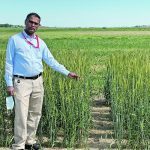Researcher is determined to do what it takes to make sure the crop remains a viable option for prairie farmers
This is part of an ongoing series of stories exploring rye, the crop, as it becomes Rye, the whisky. Sometimes it takes a mad scientist to bring something new to life. “My friends say I am obsessed with this crop improvement,” said Raja Ragupathy, an Agriculture Canada plant breeder in Lethbridge. Other stories in this […] Read moreTag Archives plant breeding

Opinion: Fear of biotechnology will fade away
Gene editing is simply an extension of conventional breeding, which is the kind of breeding that farmers have practiced for millennia. For me, as a farmer in Saskatchewan, it provides an amazing opportunity.
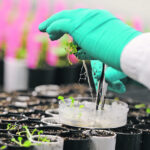
Consumers remain skeptical of modern plant breeding
Debunking myths and lowering concerns about genetically modified organisms and gene editing must remain a focus for the agricultural sector, a conference was told last month. Ian Affleck, vice-president of plant biotechnology at CropLife Canada, said during the Farm and Food Care Saskatchewan meeting that consumers don’t have a high opinion of plant breeding, illustrating […] Read more
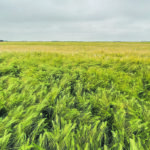
Plant breeder focuses on nutritional value
When plant breeders develop a new variety, the goal is a crop that is “the total package.” They want a high-yielding crop with superior disease resistance, tolerant of drought, has excellent end-use qualities and a long list of other traits. Kevin Murphy, a plant breeder at Washington State University, said breeders sometimes overlook one of […] Read more
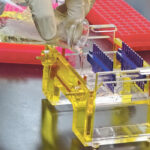
Traits and techniques:
How the search for genetic improvements is accelerating, thanks to new research tools
In conversation with geneticist and plant breeder Curtis Pozniak Western Producer journalist Karen Briere explores the fast-path forward in plant breeding in Canada. Join her on our digital platform for these interviews: What’s changed in plant breeding over the last 20 years? How does DNA testing of plants save scientists and farmers time and money? […] Read more
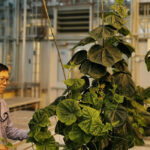
Portable synchrotron to assist plant imaging
The smaller machine can be brought into greenhouses and take pressure off the beam lines at the Canadian Light Source
The Global Institute for Food Security at the University of Saskatchewan is using synchrotron technology as a way to look more closely at plants. By capturing these images of the plants, they will be able to make crop breeding more efficient. The synchrotron that is being used is semi-portable, the first ever designed to be […] Read more
Health Canada declares gene editing safe
The ruling is expected to give Canadian producers access to the same types of plant breeding available in other countries
Canadian farmers may soon be growing gene-edited crops. That’s because Health Canada has declared that gene-editing technology is safe. Last week, Health Canada proposed new rules to oversee plant breeding innovation, including gene editing. Within the proposed guidelines, released March 25, federal scientists say that gene editing is just as safe as conventional plant breeding. […] Read more
Gene edited crops are safe: Health Canada
UPDATED: March 26, 2021 – 1425 CST – adds audio comments from Erin Gowriluk, executive director of the Grain Growers of Canada Health Canada has declared that gene-edited crops are safe. On March 25, the department launched a public consultation for what it’s calling a “Proposed new guidance pieces for the Novel Foods Regulation, focused […] Read more
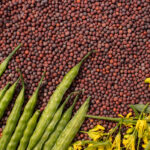
Researchers dive deep into black mustard
New sequencing technology called nanopore helps scientists reveal previously hidden features buried in plant genomes
Decoding the full genome for black mustard has helped advance breeding of oilseed mustard crops and improved breeding of wheat, canola and lentils. “We were interested in black mustard because basically it’s half the genome of condiment mustard and carinata,” said Isobel Parkin, research scientist with Agriculture Canada and member of the Plant Phenotyping and […] Read more
Cutting edge lab holds plant breeding promise
It is also expected to help livestock breeders with health, production, efficiency, reliability and resiliency improvements
Canada’s first fully integrated Omics and Precision Agriculture Laboratory is ready to offer its services. Steven Webb, chief executive officer at the Global Institute for Food Security at the University of Saskatchewan where the new lab is located, said OPAL provides analytical and computational services to study genomics, phenomics (organism traits) and bioinformatics (analyses of […] Read more
